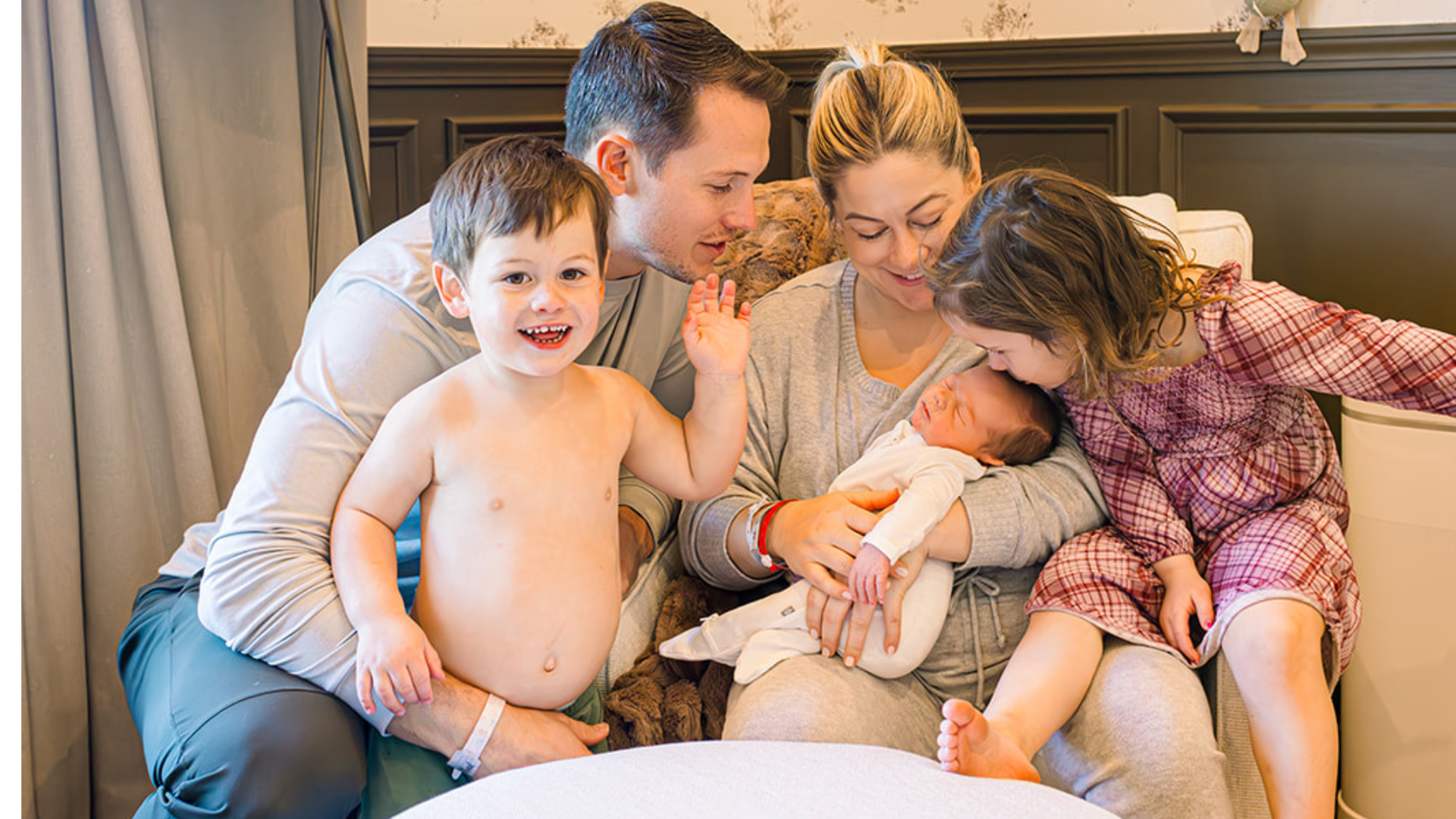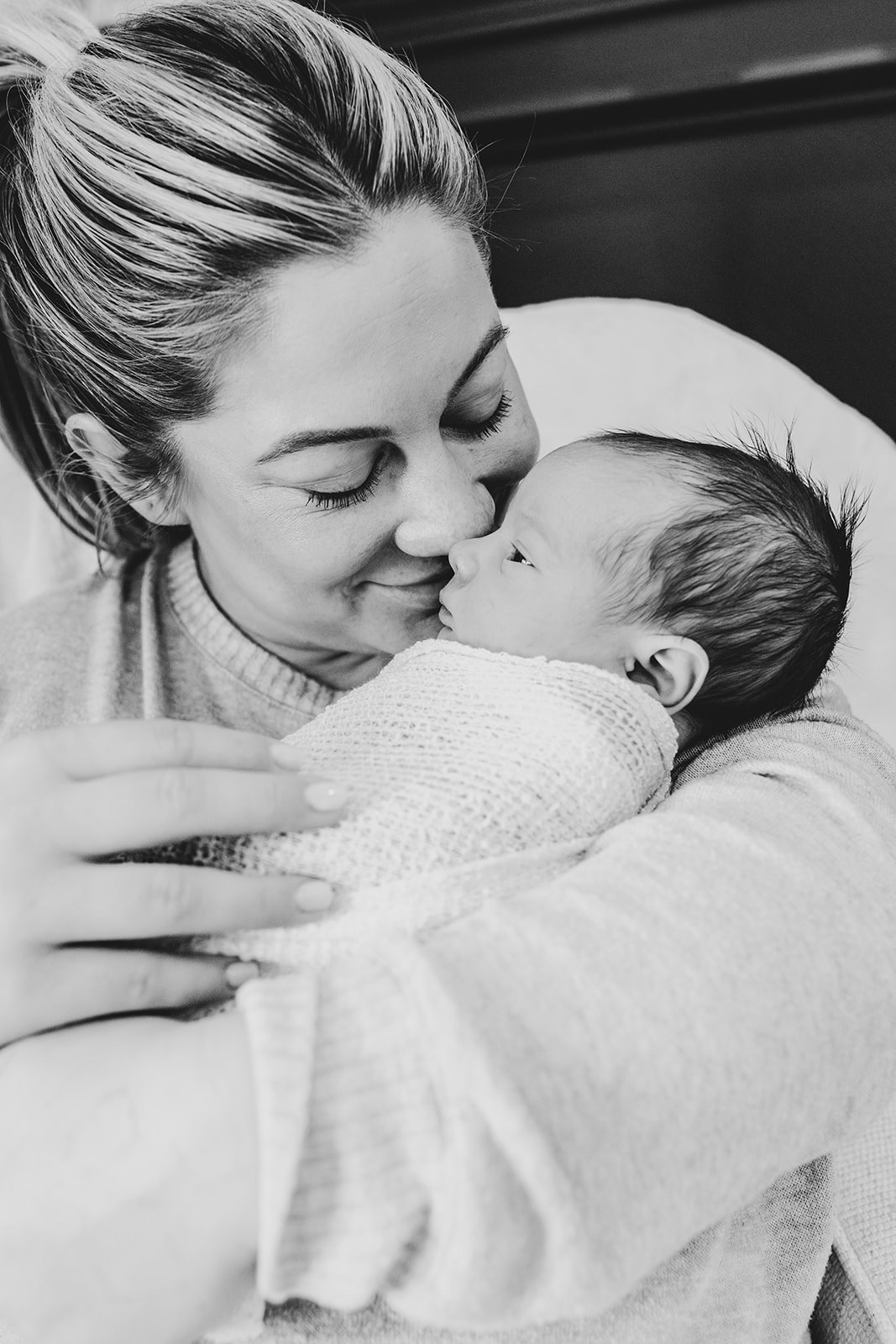
Shawn Johnson East first tumbled into our collective consciousness as a gymnast and Olympic medalist. Today, the 32-year-old is a mother of three. With each child, Johnson East has had a different experience with the respiratory syncytial virus, more commonly known as RSV. Her eldest daughter, Drew Hazel East, was the first to catch it.
“It was a week after I brought my second child home, which was really scary,” Johnson East tells CafeMom. “That was hard. We had to kind of quarantine and keep Drew and my second child, Jett, separated. She dealt with it fine. She had cold symptoms.”
SIx months later, it was Jett’s turn. Like his sister before him, he also had cold symptoms: runny nose, a low fever, lethargy.
“Then, one night, he woke up in the middle of the night having a really, really hard time breathing,” she tells us. “He had retractions. We couldn’t get him calmed down and comfortable so we took him to the emergency room.’
The doctors confirmed that it was RSV, gave Jett oxygen and monitored him for 24 hours. Afterward, he was able to go home but the whole ordeal was frightening.
More from CafeMom: The Number 1 Reason Infants End Up in the Hospital & How to Prevent It
With her third child, she was able to do things differently.

When Johnson East was carrying her youngest son Barrett, who was born last December, she decided to mitigate some of the fear.
“When I got pregnant with Barrett is when Beyfortus came out and it was a conversation my pediatrician brought up to me,” Johnson East says.
December is peak RSV season in Nashville, Tennessee, where she and her family live. Johnson East and her family were going to be around a lot of other children, including the two toddlers in her home.
“It just made sense for our family,” she shares. “It was very comforting for me, having gone through that with Jett, knowing that there was another preventative option.”
Beyfortus is not a vaccine.

Beyfortus is not another vaccine. Instead, it’s an antibody. “When you get injected with a vaccine, a vaccine will tell your body to make antibodies,” pediatrician, parenting educator and mother Dr. Mona Amin explains. “In the chance you get exposed to that virus in the future, your body will be like a self defense instructor: ‘Okay go, attack this virus!’”
But with Beyfortus, the antibody neutralizes the virus on contact. “Think of that same self defense instructor fighting someone off for you but not teaching you the skills,” she says.
'The virus can be so unpredictable,' the pediatrician says.

As a result, Beyfortus works faster than a vaccine but may also wear off quicker too. Right now, the product provides protection for up to five months.
Beyfortus can be administered from day 1 of life up until the child’s first RSV season. It’s designed for infants, but children between 1 and 2 years old with underlying health issues or those who are immunocompromised can also receive the drug.
“I can understand why parents might be hesitant,” Amin tells us. “There are so many medications and vaccines. But the virus can be so unpredictable. I cannot predict which child is going to get severely sick. Which is why it’s so scary for me as a pediatrician. The fact that RSV is the leading cause of hospitalization in children under 1 year of age and children are 16x more likely to be hospitalized with RSV than the flu was really concerning to me.”
Research on Beyfortus began in 2016.
The research on Beyfortus began in 2016. Seven years of research have found it to be quite effective, significantly reducing the risk of severe respiratory tract disease.
No drug can prevent you from getting a virus but, as Amin says, “It can really mean the difference between ending up in the hospital or seeing the doctor as an outpatient. So that’s less stress for parents, less copays and costs for the healthcare system. Anything that can help the healthcare system, help babies and give parents peace of mind, I’m all for it.”
You can learn more about Beyfortus at Beyfortus.com.




